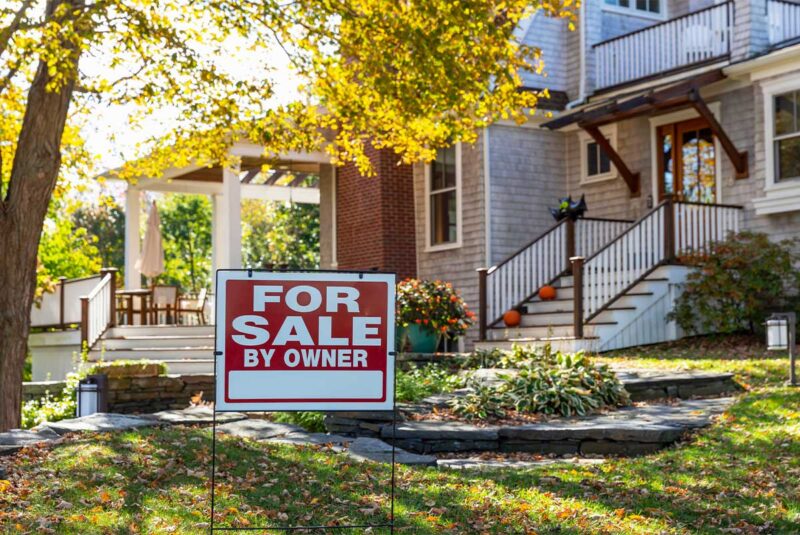Ready To Buy a Home?
Get Approved to Buy a Home
Rocket Mortgage® lets you get to house hunting sooner.
When you’re ready to buy a home, chances are you’ll need to at least consider using a real estate agent. But real estate agents perform different functions, and the jargon surrounding their names can be confusing to say the least.
We’ll walk you through buyer’s agents – the type you need to help you purchase a property – and explain what they do, how much they’ll cost you and the upsides and downsides of using them.
What Is a Buyer’s Agent?
Buyer’s agents represent prospective home buyers in a real estate deal. Their job is to look out for the best interests of the buyer and to advise them on everything from financing and finding a home to navigating the closing process.
You may notice that some real estate agents refer to themselves as REALTORS®. This means they’re a licensed real estate agent who belongs to the National Association of REALTORS® (NAR). NAR members pay membership dues and are bound by a national code of ethics.
Get approved to buy a home.
Rocket Mortgage® lets you get to house hunting sooner.
Listing agents and dual agency
On the opposite end of the real estate transaction is the agent representing the seller. They’re known as listing agents. Just as a buyer’s agent is responsible for looking out for the buyer, the seller’s agent is responsible for advising and looking out for the seller.
Because a seller’s best interests and a buyer’s best interests are often in conflict, it’s not recommended that you use the same person as the listing agent and the buyer’s agent. When this occurs, it’s known as dual agency, and the practice can be illegal depending on where you live.
What Does a Buyer’s Agent Do?
Okay, so we know buyer’s agents look out for the buyer. But what does that look like in practice? Here’s a list of responsibilities a buyer’s agent can help with.
Buyer's Agent Duties
It’s common for real estate agents to communicate with different lenders. If you’re struggling to find financing, they might be able to make a lender recommendation. Experienced agents also work with many different types of offers, so they may be able to suggest creative mortgage options based on what they’ve seen in the past.
Real estate agents have access to multiple listing services (MLSs) where properties are listed. They can also leverage their market knowledge and professional networks to advise you on which neighborhoods to look into – and potentially help you find properties that haven’t been listed yet.
Depending on your experience, you may have never submitted an offer before. Real estate agents do this for a living, and they can help walk you through the necessary paperwork and advise you on how to structure your offer as competitively as possible.
From the purchase price to repairs and seller concessions, the home buying process is filled with negotiating points. Having an objective professional dedicated to your best interests can reduce a significant amount of the stress that comes with negotiations.
The closing process is made up of a lot of individual steps, like the home inspection and home appraisal. An experienced agent can help you navigate it, like potentially recommending professional inspectors and walking you through all the required documentation.
How Much Does a Buyer’s Agent Cost?
Buyer’s agents work on commission, so they only get paid when a deal goes through. Traditionally, their commission usually comes out of the seller’s profits from selling the home. However, this can be negotiated. It’s possible – though much less common – for the buyer to pay the buyer’s agent commission.
Real estate agent commissions usually range between 5% and 6% of the home sale price and are divided between the listing agent and the buyer’s agent. That’s also up for negotiation, and the split isn’t always even. For example, a listing agent could take 4%, while the buyer’s agent takes 2%.
Do You Need a Buyer’s Agent?
A lot of potential benefits come with using a buyer’s agent, but as always, there are potential risks to consider as well. Here are some of the most important pros and cons that should factor into your decision making.
PROS of using a buyer’s agent👍
From other real estate agents and mortgage lenders to prospective home sellers, well-connected agents know a lot of key players. One of the biggest advantages of having a real estate agent is letting them use those connections to your advantage.
An experienced agent should be able to tell you what the up-and-coming neighborhoods are and which areas to avoid. They should also be able to advise you on how to structure your offer to win based on the market conditions. For example, they might advise you to offer above asking price in a hot real estate market or suggest other tactics for winning a bidding war.
There’s no home purchase without paperwork. A lot of it. Buyer’s agents can take that stress off of your plate and talk you through the fine points of all the different documents, so you can sign on the dotted line with confidence.
Home buying can be emotional. After all, we’re talking about properties that could become your home. Having someone level-headed in your corner can protect you from making emotional decisions you’ll regret down the road. And with their professional expertise, they should be a good barometer for whether or not you’re being treated fairly by all the different parties you’ll need to interact with.
CONS of using a buyer’s agent👎
Ideally, as a buyer, you won’t be responsible for your real estate agent’s commission. However, it doesn’t always work out that way. Some sellers may ask that you cover your agent’s commission or factor the commission into the purchase price.
Human beings make mistakes and learn from them. But if you’re dealing with an inexperienced real estate agent, these mistakes can be costly. Even without mistakes, inexperienced agents will have less professional experience to draw from, and their professional networks likely won’t be as robust.
While you’re only looking for one house, a good real estate agent is probably juggling multiple clients and priorities. This can lead to scheduling conflicts, like if they have to leave a showing to go prepare for an open house. You could also have trouble getting a hold of them, depending on how busy they are.
Tips for Finding a Buyer’s Agent
If you do decide that a buyer’s agent is right for you, here are some tips for finding the right person.
- Get referrals: Real estate is local, and real estate agents live and die by their reputation. Ask friends and family members for referrals. If they did a good job for someone you care about, that’s a strong indicator that they could do a good job for you.
- Talk to multiple agents: Don’t settle for the first person you talk to. Treat the process like you’re hiring someone – because that’s exactly what you’re doing. If you only talk to one candidate, you’re doing yourself a disservice.
- Evaluate local market knowledge: Ask your potential real estate agents their opinions on the market. Ask what they think the hot new areas are and where you should shy away from for the price, and ask them to explain why. Not only will this boost your own understanding of the market, but you should get a sense for how they think and whether or not you trust their judgment.
- Consider communication styles: Some people prefer to over communicate, while others would prefer an email once a week. Get a sense for the agent’s communication style and make sure it jives with your own. Even if it seems like a good fit, make sure to set clear expectations for communication at the beginning of your relationship.
Final Thoughts on Buyer’s Agents
One of the best aspects of using a buyer’s agent is that your relationship can develop over time. If they help you purchase a new home, if/when you’re ready to eventually sell it, it’s common to have your buyer’s agent become your listing agent to help with that side of the process.
When looking for a real estate agent, prioritize finding someone you can trust throughout all of the ups and downs of the process. If all goes well, it could be the start of a beautiful professional friendship.
Home is worth it.
The mortgage process can be exciting, and we’ll be with you all the way. Take the first step to owning a home. You’ll be glad you did.
The Short Version
- Buyer’s agents represent prospective buyers in a real estate deal. They can advise on everything from financing and finding a property to navigating the closing process
- Buyer’s agents get paid via the commission from a property sale. Usually, their cut comes out of the seller’s profits, but this is up for negotiation and can be covered by the buyer
- Tips for finding a buyer’s agent include asking for referrals from friends and family, talking to multiple agents and making sure their communication style matches your expectations




